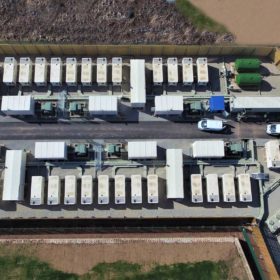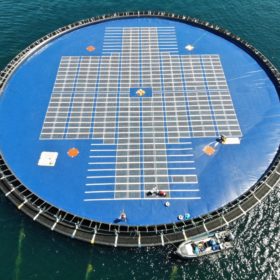European Commission bids to ease planning of trans-border battery and hydrogen projects
The commission has proposed updating the law which regulates the bloc’s cross-border energy networks to include new energy storage technologies and smart grids as well as removing fossil fuel eligibility for public funding.
European Commission approves further €2.9bn battery research project
Companies from a dozen EU member states will commit the public funds in a bid to come up with novel battery chemistries and production methods as well as recycling and circular economy innovation.
EU-China Comprehensive Agreement on Investment opens manufacturing options, dodges forced-labor issues
The European Commission has finalized its long-anticipated investment agreement with China. While some renewable energy businesses might benefit from improved investment security, IP protection and access to legal remedies in China, the Commission did not address the issue of Uyghur forced labor in China. As a majority block in the European Parliament had previously demanded from the Commisison to develop a firm policy to end forced labor in China, there is reason for doubt that the agreement as it stands will be adopted by the EU Parliament.
Ten-year renewal of Estonia’s renewables support program
New €450 million incentive regime needed to be approved under EU state aid rules.
‘Europe’s battery recycling quotas are blunt and a decade too late’
Last week, the European Commission announced it plans to implement sustainability standards for Europe’s growing battery industry. Consultant Circular Energy Storage published a report on lithium-ion battery life cycle and recycling economics this month and its findings ask tough questions of the commission’s proposals.
European Commission proposes minimum sustainability thresholds for batteries
The world’s second largest battery market is mulling strict regulation of what type of products can be sold within it. The bloc wants to tighten rules on using hazardous materials and would encourage circular economy approaches. The scope of the commission’s proposal would also affect the design of devices, with phones, laptops and other portable gadgets without removable batteries set to be prohibited.
EU solar manufacturers must show willing on circular approach to secure funding
An extensive European Commission regulation has set the bar on those economic activities deemed to help in the war against global heating and, by implication, those which may hinder the effort.
Floating solar could benefit from EU offshore renewables strategy
A clean energy plan drawn up by the European Commission includes details of the various funding pots available to help ocean-based renewables hit 340 GW of generation capacity by mid century.
Contribute to new EU renewables directive
The regulation needs updating to incorporate a raised emissions reduction ambition which will target a 38-40% fall in greenhouse gas emissions by 2030.
European Council reaches €1.82tn budget agreement with parliament
The parliament and EU member states will now mull the proposed budget for 2021-27 which includes a €750 billion Covid recovery package and a Strategic Investment Facility it is hoped will unlock €150 billion for renewables and energy storage to 2027.









